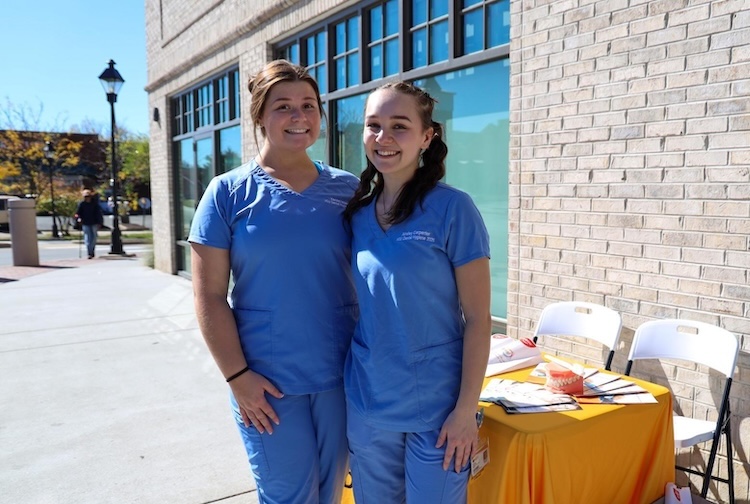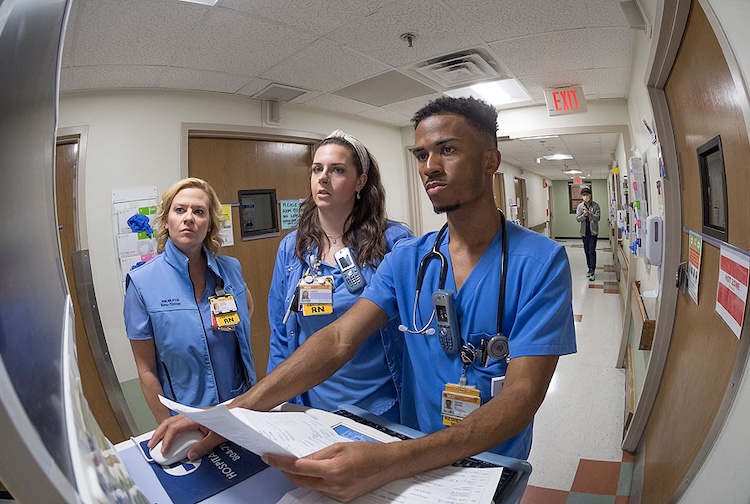'Dreamland' author Sam Quinones: Opioid epidemic is 'a nightmare for American families'
September 28, 2017

Sam Quinones describes speaking dates to talk about his book “Dreamland: The True Tale of America's Opiate Epidemic,” as a sad map reflecting the breadth of territory where the opioid crisis has made its mark.
“Alabama, Vermont, Mississippi,” Quinones said Tuesday at an event hosted by the Virginia Hospital Research and Education Foundation. “It's a nightmare for the country and a nightmare for American families.”
Quinones was the keynote speaker Tuesday at “The Opioid Entanglement — A National Perspective on the Commonwealth's Crisis,” an event sponsored in part by VCU Health and held at the Hermes A. Kontos Medical Sciences Building Auditorium. His remarks, like his book, chronicled the entrance of opioids into mainstream medicine. Using the drug as a treatment for pain has yielded detrimental side effects and long term addiction issues for users throughout the country, Quinones said.
“Before [the opioid epidemic] pain management was a holistic plan [of action],” he said. “In time, doctors were left with one tool which was opioid painkillers. It was promoted the way you would promote an over-the-counter drug.”
Today, nearly half of all U.S. opioid overdose deaths involve a prescription opioid, and in 2015, more than 15,000 people died from overdoses of prescribed opioids, according to The Centers for Disease Control and Prevention. Locally, in 2016, Gov. Terry McAuliffe and Virginia Health Commissioner Marissa Levine declared the opioid addiction crisis a public health emergency in Virginia.
“This is the first drug epidemic that didn't start with drug trafficking, but because of well-meaning doctors,” Quinones said.
His talk was followed by a discussion that included panelists from every aspect of Virginia's public health community, including state government. State Sen. Bryce Reeves has been public about his desire to address Virginia's opioid epidemic and, as a panelist, urged the community to look for solutions for users that involve treatment.
“We're not going to jail our way out of this,” he said.
Other panelists included William A. Hazel Jr., Virginia secretary of health and human resources, and Lora Peppard, Ph.D., leader of the Virginia Screening, Brief Intervention and Referral to Treatment program, designed to combat substance abuse and fatal drug overdoses. VCU School of Dentistry Professor Omar Abubaker, D.M.D., Ph.D., was also on the panel. Abubaker lost his youngest son to a fatal blend of heroin and benzodiazepine three years ago, and is now vocal about his loss and his commitment to educate students about opioids.
The 360 attendees at the event were encouraged to ask questions as a way to take a collective approach at addressing opiate addiction.
“Our goal was to highlight the opioid epidemic at every angle with this event and I think we did that,” said Lauren Martin, manager of program development and engagement at VHREF. “Now hopefully we're on to solutions and putting in place methods, legislation and leadership that will combat this health issue.”
VCU and VCU Health are on the front lines of Virginia's opioid epidemic through research, education and community addiction programs. A series of university events, including a discussion with Quinones in November, are scheduled throughout the 2017-18 academic year to continue the discussion on opioid addiction, management and solutions.
Virginia Secretary of Public Safety and Homeland Security Brian Moran, who gave opening remarks at the event, lauded the state government's attention to the opioid crisis and the multidisciplinary way it has been approached.
“We're working in a very bipartisan way, a very collaborative way,” he said. “Virginia is taking bold steps to address this epidemic.”
Subscribe for free to the VCU News email newsletter at https://news.vcu.edu/ and receive a selection of stories, videos, photos, news clips and event listings in your inbox every Monday and Thursday during the academic year.




